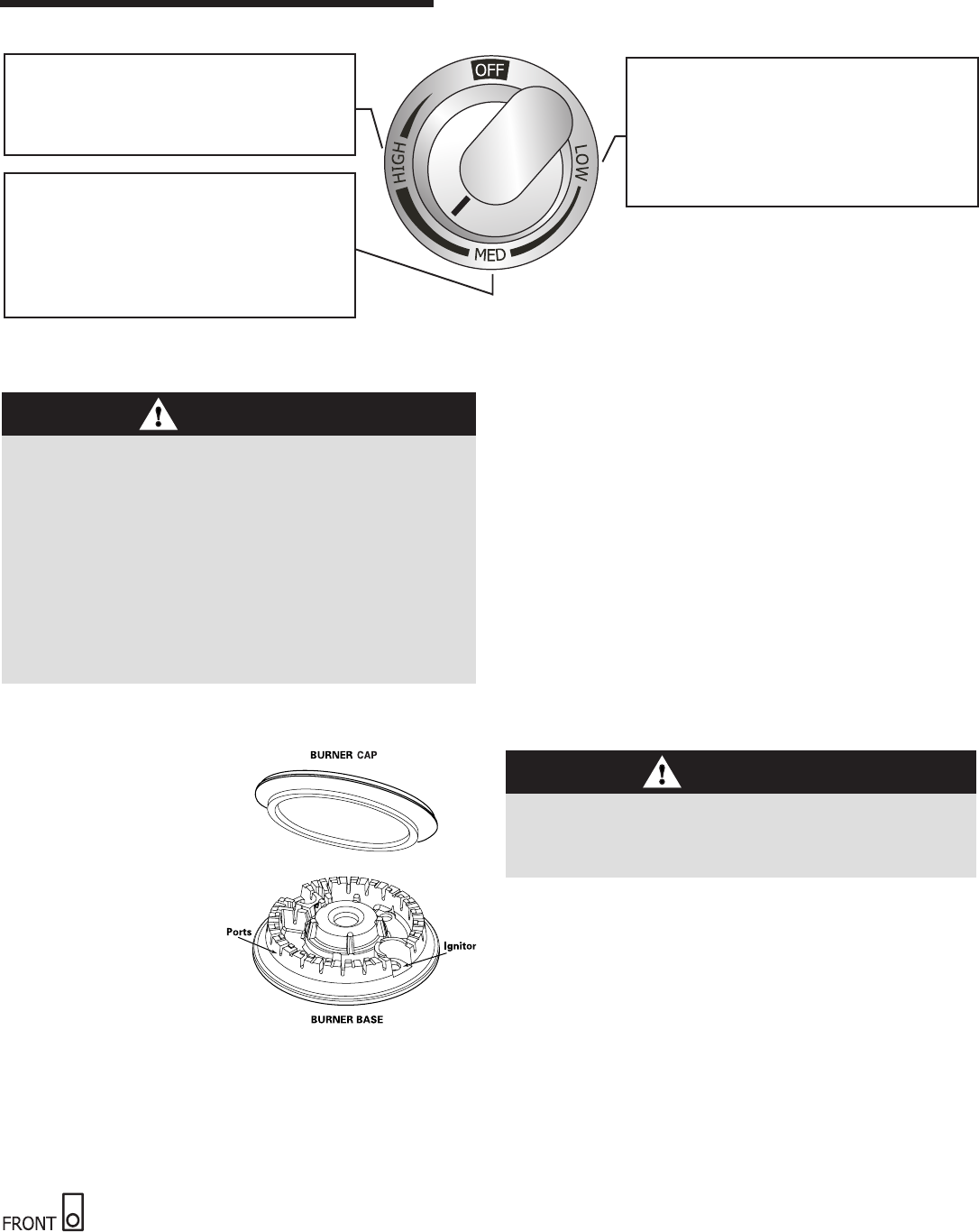
12
SURFACE COOKING
Surface Controls
Pilotless Ignition
Pilotless ignition eliminates the
need for a constant standing
pilot light. Each surface burner
has a spark ignitor. Use care
when cleaning around the
surface burner.
If the surface burner does
not light, check if ignitor is
broken, soiled or wet.
Setting the controls:
The size and type of cookware will affect the heat setting.
1. Place a pan on the burner grate.
• The burner flame may lift off or appear separated from
the port if a pan is not placed on the grate.
2. Push in and turn the knob to the desired setting.
• A clicking (spark) sound will be heard and the burner
will light.
Important: Each surface burner is equipped to provide
automatic reignition if the flame should somehow get blown
out.
Operating During a
Power Failure
Surface Control Knobs
Use to turn on the surface burners. An infinite choice of heat
settings is available from LOW to HIGH. At the HIGH setting a
detent or notch may be felt. The knobs can be set on or
between any of the settings.
Graphics next to the knob identify which burner
the knob controls. For example, the graphic at left
shows a front burner location.
CAUTION
• If flame should go out during a cooking operation and
the burner does not reignite itself, turn the burner off. If a
strong gas odor is detected, open a window and wait five
minutes before relighting the burner.
• Be sure all surface controls are set in the OFF position
prior to supplying gas to the range.
• NEVER touch cooktop until it has cooled. Expect some
parts of the cooktop, especially around the burners, to
become warm or hot during cooking. Use potholders to
protect hands.
CAUTION
When lighting the surface burners, be sure all of the
controls are in the OFF position. Strike the match first and
hold it in position before turning the knob on.
1. Hold a lighted match to the desired surface burner head.
2. Push in and turn the control knob slowly on.
3. Adjust the flame to the desired level.
HIGH: Use to bring liquid to a boil, or reach
pressure in a pressure cooker. Always
reduce setting to a lower heat when liquids
begin to boil or foods begin to cook.
An intermediate flame size is used to
continue cooking. Food will not cook any
faster when a higher flame setting is used
than needed to maintain a gentle boil.
Water boils at the same temperature
whether boiling gently or vigorously.
LOW: Use to simmer foods, keep foods
warm and melt chocolate or butter. Some
cooking may take place on the LOW
setting if the pan is covered. It is possible
to reduce the heat by rotating the knob
toward OFF. Be sure flame is stable.
8113P524-60 11/9/05, 4:30 PM13


















